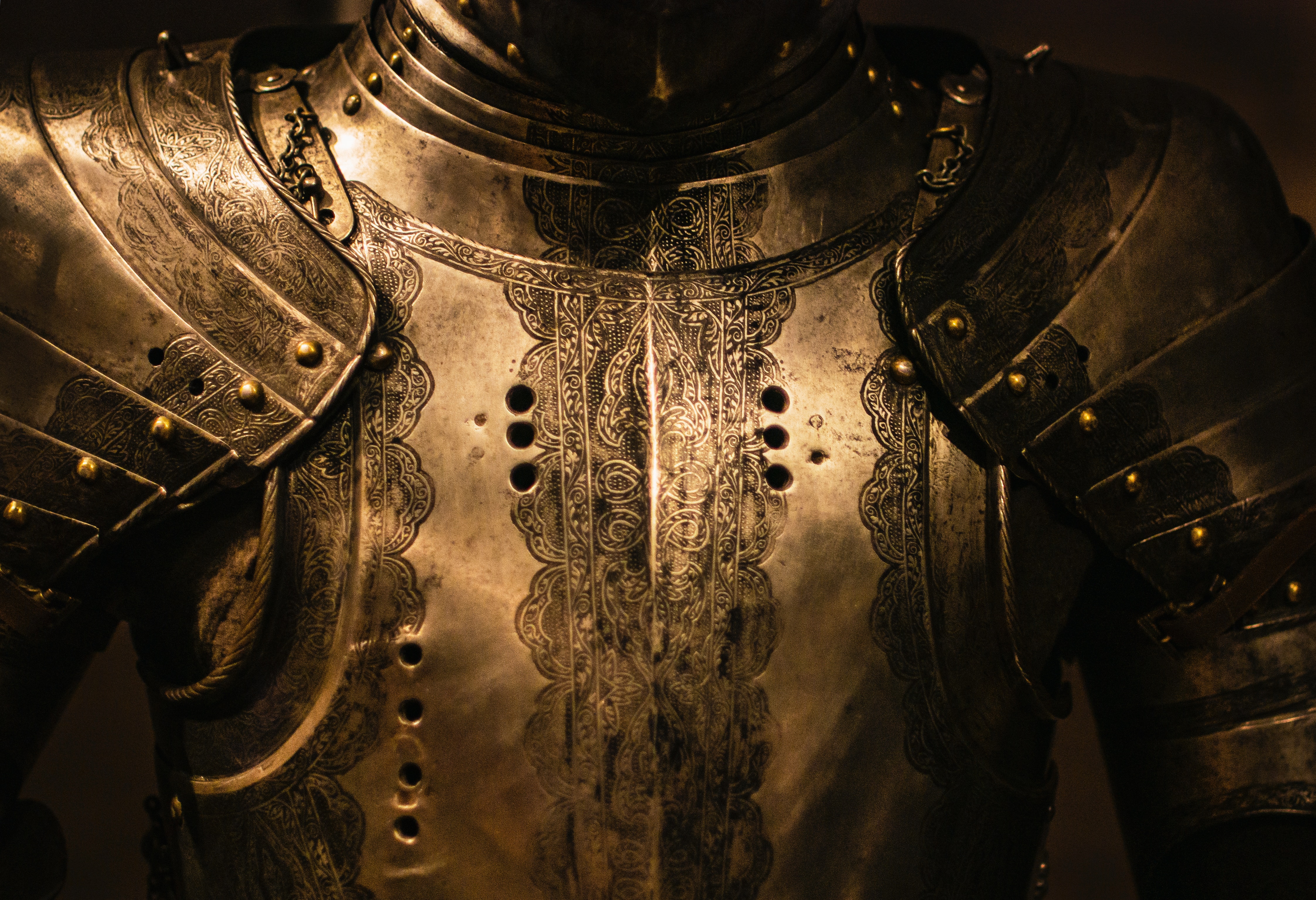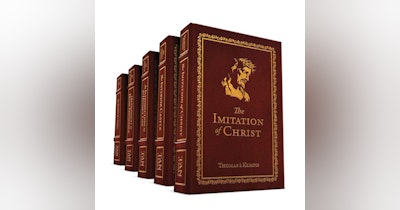In a world where honor and virtue seem to be fading, the timeless concept of chivalry stands as a beacon of hope and inspiration. Rooted in the heart of Catholic tradition, chivalry beckons men to embrace a noble code of conduct, fostering virtues that uplift their souls and inspire them to be better protectors and leaders. Join us on this enlightening journey as we explore the essence of chivalry from the perspective of the Catholic Church, drawing wisdom from the saints, papal encyclicals, and the Catechism.
I. Unraveling the Noble Origins of Chivalry
Chivalry, often associated with knights and medieval times, transcends its historical context to embody a timeless ethos of masculine fortitude. Rooted in the Latin word "caballus," meaning "horse," chivalry initially referred to the mounted warriors who exemplified courage, loyalty, and courtesy in their noble quests. As knights fought for honor, justice, and the defense of the weak, the concept of chivalry evolved into a way of life that continues to inspire men of all ages.
Chivalry has been deeply intertwined with the Catholic Church throughout history, as the Church sought to instill virtuous values and foster a moral compass in the knights who defended Christendom. The combination of military prowess and moral integrity formed the foundation of chivalry, becoming a guiding light for future generations of honorable men.
II. Chivalry through the Lens of Catholic Saints
-
St. Thomas Aquinas: The Angelic Doctor, in his theological brilliance, emphasized the significance of masculine courage as an integral virtue in the knight's path of chivalry. His writings in the Summa Theologica delve into the virtues that epitomize the chivalric ideal, reminding men of the importance of living with integrity and valor, standing firm in their faith.
-
St. Joan of Arc: As the Maid of Orléans, St. Joan exemplified chivalry in her unwavering commitment to her divine calling. With courage, humility, and devotion to God, she led armies to protect her country, demonstrating the strength and resilience of a true warrior. St. Joan's courage and loyalty to God's mission remain an inspiration for men to embrace their call to defend the truth and lead with honor.
-
St. Louis IX: The Crusader King, known for his fair and just rule, embodied chivalry through his dedication to serving God and his people. His commitment to piety, charity, and mercy exemplified the highest ideals of the knightly code. St. Louis's legacy reminds men of their duty to be noble leaders, just and compassionate in their actions.
-
St. Ignatius of Loyola: The founder of the Society of Jesus, St. Ignatius, exemplified chivalry through his unwavering dedication to Christ and his mission. His spiritual exercises inspired countless individuals to seek a life of virtue and service, embodying the chivalric spirit of loyalty to a higher calling.
-
St. Maximilian Kolbe: The martyr of charity, St. Maximilian Kolbe, embodied chivalry through his selfless act of sacrificing his life to save another in Auschwitz. His unwavering faith and courage in the face of evil serve as a powerful example of how men can bravely defend the dignity of others.
III. Chivalry in Papal Encyclicals
Throughout history, popes have reaffirmed the importance of chivalry and the virtues it upholds:
-
Pope Leo XIII's "Rerum Novarum": In this encyclical, Pope Leo XIII emphasizes the dignity of the human person and the need for just treatment of workers. Chivalry calls men to uphold the dignity of all, defending the rights and well-being of their fellow brothers and sisters.
-
Pope Pius XI's "Casti Connubii": This encyclical addresses the sanctity of marriage and the family. Chivalry urges men to be faithful husbands and loving fathers, protecting and nurturing their families with selfless love and care.
-
Pope Saint John Paul II's "Familiaris Consortio": In this document, Pope John Paul II highlights the significance of the family as the foundation of society. Chivalry calls men to be strong pillars in their families, providing love, support, and guidance to their spouses and children.
IV. Chivalry in the Catechism of the Catholic Church
The Catechism of the Catholic Church echoes the essence of chivalry through various teachings:
-
Respect for Life: Chivalry upholds the dignity and sanctity of all human life, aligning with the Church's teachings on the sacredness of life from conception to natural death (CCC 2258-2283). The code of chivalry demanded that knights protect the weak and vulnerable, reflecting the Church's call to respect the sanctity of life and defend the defenseless.
-
Love and Charity: Chivalry's emphasis on selflessness and compassion mirrors the call to love one's neighbor as oneself (CCC 1822-1829). The chivalric ideal extended beyond self-serving interests, calling for acts of kindness and charity towards others, especially those in need.
-
Virtues and Moral Life: The knight's pursuit of virtues like courage, justice, and temperance resonates with the Church's teachings on moral life and growth in holiness (CCC 1803-1845). Chivalry's focus on virtuous living aligns with the Church's emphasis on personal transformation through Christ-like virtues, shaping men to be strong, just, and compassionate leaders.
V. Embracing Chivalry in Modern Times
In today's fast-paced and individualistic world, chivalry can seem antiquated. However, its principles remain relevant as beacons of hope. To embrace chivalry in modern times:
-
Practice Respectful Communication: Honoring one another through courteous and respectful communication fosters a sense of chivalry in men's interactions. By listening attentively and showing genuine concern for others, men can lead with strength and humility.
-
Defend the Weak: Chivalry prompts men to defend those in need, advocating for the marginalized and oppressed. In a world filled with social injustice, embracing the call to protect and uplift the vulnerable is an embodiment of chivalric principles.
-
Cultivate Virtues: Striving to live virtuous lives, guided by the teachings of the Church and the wisdom of the saints, enables men to embody chivalry in their everyday actions. The pursuit of virtues such as courage, self-discipline, and magnanimity empowers men to be virtuous warriors in the battle against evil and injustice.
-
Promote Courtesy and Politeness: In a world where civility sometimes takes a backseat, chivalry calls men to exhibit courtesy and politeness in their interactions with others. Simple gestures like holding the door for someone, using polite language, or showing gratitude can make a significant impact on the world around them.
-
Champion Moral Courage: Chivalry demands moral courage—the strength to stand up for what is right, even in the face of adversity. In the pursuit of truth and justice, men must be willing to uphold moral principles and defend the teachings of the Church with unwavering faith.
VI. Chivalry: A Light in the Darkness
As men embrace the timeless principles of chivalry, they become beacons of light in a world often shadowed by selfishness and indifference. Chivalry is not a mere relic of the past but a living code that can transform hearts and society.
Let men remember that chivalry is a call to action, to rise above mediocrity and embrace the noble code of honor with masculine fortitude. Men are called to be protectors, leaders, and defenders of truth, justice, and virtue.
Conclusion
Chivalry, rooted in Catholic tradition and exemplified by the lives of the saints, papal encyclicals, and the wisdom of the Catechism, continues to inspire men in the modern era. As men navigate the complexities of contemporary life, embracing the noble code of chivalry becomes a transformative journey—a journey that leads them to live with integrity, uphold justice, and love one another as Christ loved them.
In the quest for chivalry, men discover a path of virtue and nobility—a path that empowers them to leave a positive mark on the world. Let men heed the call of chivalry and become modern-day knights, fighting for truth, defending the weak, and shining the light of Christ's love in every corner of the world.
May the spirit of chivalry guide men's steps and lead them to lives of honor, virtue, and selflessness. In embracing chivalry, men become ambassadors of the Catholic faith and instruments of God's grace in the world.









